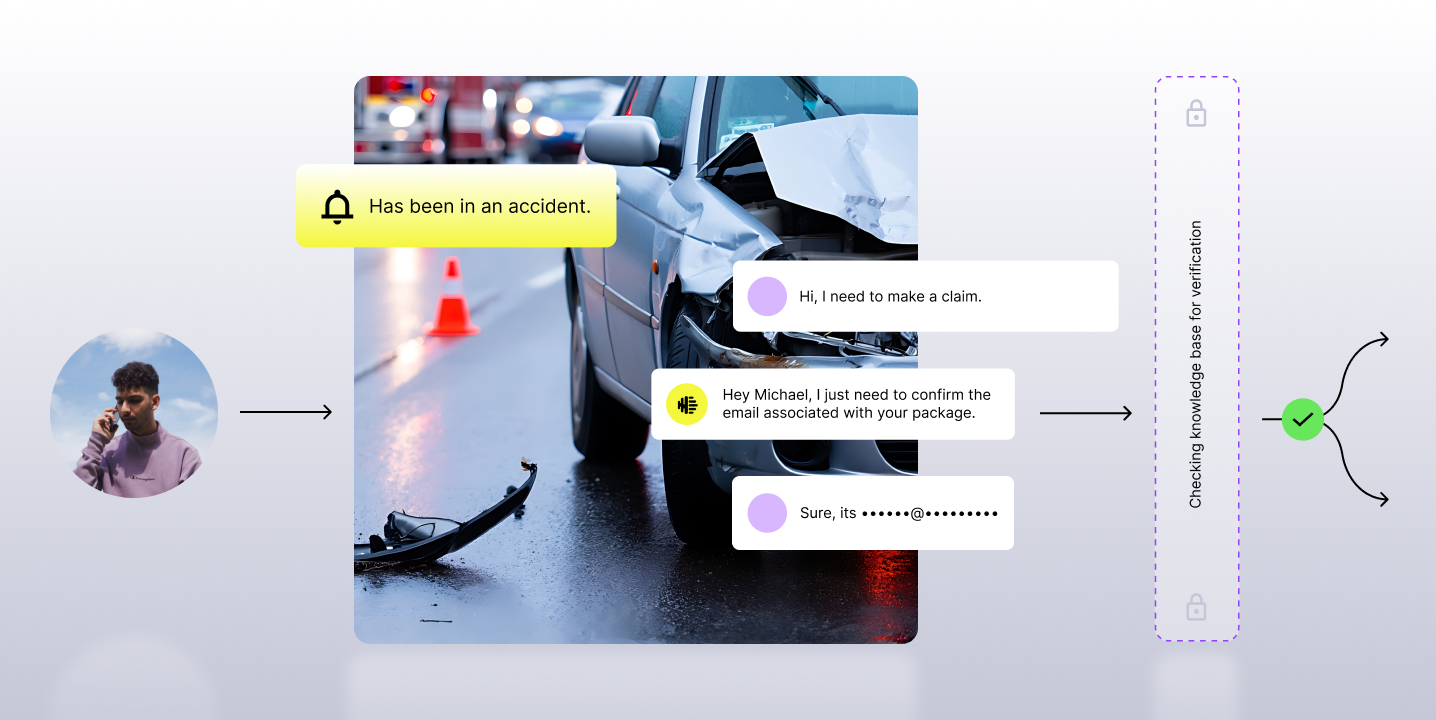I'm not surprised that contact center sales organizations and quality assurance teams aren’t able to listen to many sales call recordings when coaching their reps and agents.
Legacy technology hasn't made it easy to do so.
The unfortunate truth is that evaluating sales call recordings is often time consuming and inefficient. And we all know, especially for contact center sales teams, that time is money.
Unfortunately, this means loads of insights—and coaching opportunities—are being left on the table.

On average only 2% of contact center interactions get evaluated. Imagine all of the learnings you might get from the other 98%.
The bottom line is if you’re not listening to sales calls, you’re doing your team a disservice.
Here are three reasons you should be listening to your sales call recordings—and what you can do about it.
#1 Your sales team deserves better
Whether you’re in a contact center or in B2B software sales like me, sales is a hard job. It’s high risk, high reward. It’s also unique because sales reps are completely judged on their end performance.
- How many conversations did they handle?
- How many conversations were converted?
- Are they hitting quota?
- Are bookings (and the size of your bookings) increasing?
Success in sales requires hard-earned knowledge about the customer, your product, and how to handle common sales scenarios.
As leaders, it’s on us to do a better job and be accountable for our team’s success faster and with more consistency.
If sales managers and leaders aren’t willing to put the time in to listen to phone calls, we’re not doing our job.
Starting with a sales rep’s very first onboarding session, their career is in our hands and they deserve better than that.
#2 It's a predictable way to improve sales rep performance
Managers and trainers can coach new sales tactics and methodology in a sales training setting, but there’s nothing more powerful than showing actual, real-world examples.
For sales reps, there’s nothing like hearing actual recordings of effective rebuttals, upsells, or messaging, as well as the key steps in the sales process they need to hit.
According to our State of Contact Center Conversation Intelligence report, QA insights were a crucial component of coaching—and those with a formal coaching program were 4X more likely to have top performers, which directly translates to more revenue, higher customer satisfaction, and better operational efficiency.
Listening to sales conversations allows me to see the great things a rep is doing and how I can help with some targeted enablement. For contact centers with a QA team and process, enabling QA leaders and investing in that partnership will lead to better visibility and insights that can be passed on to sales teams.
#3 Compliance, compliance, compliance
Listening to sales call recordings isn’t just about helping close more deals.
For businesses that are highly regulated, listening to sales calls is crucial for staying in compliance and avoiding risk by ensuring sales reps are following key protocols.
We’ve all heard about the potential consequences for a noncompliant business, but there are also equally severe consequences for the sales rep.
Can you imagine how a sales rep will feel (or worse) if they’re responsible for a breach in compliance that could have easily been rectified had someone listened to their calls?
This keeps contact centers leaders up at night, and rightfully so. No one wants to deal with unnecessary risk or lose an employee over something that could have been avoided.
Keys to Evaluating More Sales Interactions
Ok, so you’ve heard my argument for why sales leaders and QA teams need to be reviewing more interactions, but I promise I’ll leave you with some ideas you can use to take back to your sales team right now.
Lead by example
If you want your sales team, sales coaches, and QA team to listen to more calls, start doing it yourself. Carve out time on your calendar to evaluate interactions. Lead by example and others will follow suit.
Create a culture of sharing
Write down your learnings from calls and share with individual sales reps, as well as the team (where appropriate). This breeds a culture of sharing and gets more people doing it. Specify which areas of a call are worth reviewing and the use case. If a sales rep crushed the opening or did a great job of handling a pricing question or objection, share those details with the team so they can jump to the exact moment.
Make feedback structured
After I listen to a call, I send a document with a bulleted list of feedback (both good and bad) to the rep. I’ve found that salespeople really appreciate it because it shows that we care. If you want to care about your team, show that you’re willing to invest in them. For structured coaching, leverage technology that seamlessly connects QA evaluations to coaching and rep performance.
Use call transcripts
Using sales call recording software that automatically transcribes conversations and allows you to search them can help you be more efficient in identifying areas of improvement. Whether inbound or outbound calls, searchable transcripts are a key functionality that will allow you to use call recording learnings more efficiently.
Get the right technology
Speaking of technology, find a conversation intelligence platform that gives you complete visibility into every customer interaction across channels. New innovations in QA automation are allowing contact center leaders to evaluate and analyze 100% of sales rep interactions, so managers and coaches can reps improve contact center sales based on what’s actually happening on the front line.
Monitor progress
If I’m spending time on something I want to see results. How are the insights I’ve shared from evaluating interactions impacting my team’s performance? What areas do I need to follow up with more coaching? New contact center reporting and analytics tools can provide that information, so you can take action on your insights.

Boost contact center performance. Drive business outcomes.
Observe.AI’s conversation intelligence platform can help you and your team get more insights from your sales conversations.
Built on the industry’s most accurate AI engine that analyzes 100% of interactions across channels, Observe.AI maximizes agent performance, pinpoints new revenue and coaching opportunities, and up-levels quality assurance and compliance.
With Observe.AI, sales leaders and QA teams can easily access, analyze, and evaluate sales rep interactions to fuel targeted coaching and training sessions.
Interested in learning more? Happy to chat—or view a demo here.


.png)
















